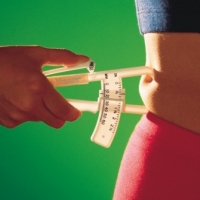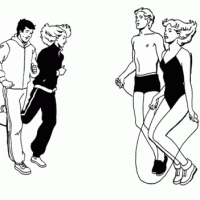Why Do Weight Loss Studies Get Mixed Results?

The debate over the best diet to lose weight has been raging for nearly 200 years, ever since John Rollo first promoted a low carbohydrate diet for diabetics in the late 1700s. Over the proceeding two centuries, there have been literally hundreds of studies1 comparing the different types of diets that have been promoted for weight loss. Perhaps the biggest ongoing debate has been the low fat versus the low carb diet, and guess what? The evidence is still not very clear. In the last study published in JAMA, 48 randomized trials with over 7000 participants were reviewed and came to the conclusion that people could lose weight on a low fat OR a low carbohydrate diet. This very scientific analysis came to a very unscientific conclusion when the authors said the results support the proposition that any diet that a patient will adhere to would be good to lose weight.2
Apples to Apples Comparison
You would think, in this day and age, that researchers would be able to design a study that really compared apples to apples in terms of those physiological factors that can influence weight loss. Many of the common variables taken into consideration are age, gender, BMI, dietary patterns, exercise, existing health conditions and medications. However, are these variables good enough to ensure valid outcomes for weight loss programs when we consider how complex our bodies really are?Important Factors That Can Influence Weight
There are dozens of factors that can influence a person’s probability for gaining weight, as well as their likelihood for being able to lose that weight and keep it off. We know there are several emotional or psychological factors that can contribute to eating disorders, as well as other external factors, such as stress. However, for the purpose of this examination, we will concentrate on those factors that are already an inherent factor inside the body. Whether they are there by virtue of genetics, behavior or exposure, is not important at this point. The main consideration is whether they could potentially influence a person’s ability to be successful in using one or another of the weight loss programs that are available.1. The PANCREAS
Is the size and make-up of the pancreas a significant factor in a person’s ability to maintain a healthy weight? According to Roger Williams, it is, and he explains this influence in his book entitled, “Biochemical Individuality,” first published in 1956, and re-issued in 1998. Dr. Williams’ research identifies three factors that can influence a person’s ability to process glucose, and thus avoid weight gain and diabetes.
a. Organ size—A person’s pancreas can range in size from 65 grams to 160 grams, which can translate into the efficiency of insulin and enzyme production. Both can influence glucose processing and digestion.3
b. Beta cell count—The number of beta cells (insulin producing) in the pancreas can range from 200,000 to 2,500,000, which means some people are ten times more likely to gain weight, or become Type 2 diabetic.4
c. Islet tissue formation—The pancreas is made up of A cells, B cells and D cells. The proportion of each type in the pancreas can greatly influence the insulin producing and glucose processing capability of the pancreas. Each type of cell helps to regulate a separate aspect of insulin/glucose processing, and if there are too few or too many of any type then weight gain and diabetes become more likely to happen.
Could this explain why some people do well on a high carbohydrate diet, while others do not do so well? Dr. Williams would answer absolutely “Yes.”5
2. INSULIN RESISTANCE
Is the amount of exercise an important factor in the body’s ability to process glucose, as well as lose weight? Doctors, like Julian Whitaker and Mark Hyman, would say “definitely, yes.” The question may be “is the amount and type of exercise a person does taken into consideration when different diet programs are studied and compared?” The answer to that question is probably, no. The reason this is important is because exercise has three different impacts on insulin resistance at the cellular level. Exercise can:
- Increase the number of insulin receptors.
- Cause the insulin receptors to stand up for more receptability to insulin and glucose.
- Cause the insulin receptors to become more sensitive.
This increase in insulin receptor activity means more insulin and glucose is taken into the cell to be used to make energy, and less is then circulating to be stored as fat or cause cellular damage. Walking 30 minutes a day is not as good as biking or running or lifting weights. Therefore, both the quantity and the quality of a person’s exercise program can have a major impact on their ability to lose weight and keep it off.6,7,8
Could this explain why some people lose more weight than others on a given weight loss program? Probably, yes.
3. BODY COMPOSITION
Is BMI measurement sufficient to differentiate one weight loss candidate from another? BMI tells us how much fat there is compared to muscle, bone, water and other constituents. However, does it give us an accurate picture of muscle mass or intracellular fat? The amount of muscle is important because muscle cells burn 400 percent more calories at rest than fat cells do. In addition, intracellular fat can disrupt the glucose burning process inside the cell by restricting Glut4 communication. It is the Glut4 molecule that actually delivers the glucose to the mitochondria to be burned as energy. Fat inside the cells restricts this process.9
Could this be one of the reasons why some people are able to lose weight more easily because they have more muscle mass and less intracellular fat? The science of cellular biology would suggest this is definitely possible.
4. CALORIE INTAKE AND TIMING
Many weight loss studies take into consideration how many calories are eaten, but do they consider a person’s weight in relationship to those calories, as well as when those calories are eaten? The answer is probably no, and here is why these factors are important.
a. A person should eat approximately 10 times their body weight in calories each day to maintain their existing weight.
b. To lose weight, they should reduce calories by no more than 10 percent because by cutting more than that, they will slow their metabolism and actually gain weight.
If a person eats four or five small meals each day, they are likely to lose more weight, than if they eat the same amount of calories in just two meals. This is due to the body’s genetic program to store those calories that are not needed at the time they are eaten or soon thereafter.12
Could the amount of calories, type of calories and time when calories are eaten, play a role in the ability to lose weight and keep it off? The answer is probably, yes.
5. NUTRITIONAL DENSITY AND QUALITY
Most diet studies do not consider nutritional density or quality when they establish relative comparison factors. Here are just a few items related to this density/quality factor that are worthy of consideration:
a. Nutritional Deficiencies—When the body does not get the nutrition it needs, then the cells tell the brain more food is needed. Most diet plans do not pay close enough attention to nutritional density or quality, which can lead to serious health problems in the future. This is a major flaw in many weight loss programs.13
b. Cravings—The cravings mentioned above also generate specific neurological reactions, such as the desire for fatty or sugary foods. Deficiencies in magnesium can create a craving for chocolate. Magnesium is needed to transport glucose and insulin into the cell. However, the better way to get magnesium is by eating greens, beans and other legumes. This is because of the nutritional density of these foods compared to chocolate.14
c. Carbohydrate Quality—The density and quality factor also applies to carbohydrates. Simple carbohydrates, such as white flour, white rice and cooked white potatoes burn quickly in the body, causing an increase in glucose, as well as insulin. Excess glucose is then likely stored as fat. Complex carbohydrates (resistant starches), such as beans, whole grains, vegetables and sweet potatoes burn more slowly in the body and have much higher levels of antioxidants and phytonutrients. Most weight loss programs do not differentiate between and among these kinds of carbohydrates.15,16
Could the quality and density of foods eaten impact a person’s ability to lose weight and keep it off? Yes, and it could also make that person less likely to become chronically ill or die prematurely.
6. Toxicity
Does the quantity of toxins in the body have anything to do with a person’s propensity to store fat? There is good reason to say that this is true for the following reasons:
a. Many toxins are fat soluble, such as dioxins, phytates and chlorine. Toxins are often absorbed into fat cells as a way for the body to protect itself from this poison.17
b. Avoiding toxins in foods (eat organic), water and the air are good ways to minimize toxins. Eating more fiber, drinking lots of water, exercising and deep breathing are ways to remove toxins from the body.18
c. Detoxification programs help people to lose weight and effective weight loss programs help people to detoxify. Could the level of toxins consumed and stored in the body impact a person’s ability to lose weight and keep it off? Most likely the answer is yes, however, this is not usually taken into consideration in weight loss programs or studies.19
7. DIGESTION
Could the efficiency of a person’s digestive system influence how effectively they can lose weight and keep it off? Here are some factors to consider:
a. Animal protein is more difficult to digest than carbohydrates. This is because we are not designed to eat meat (our teeth are for grinding and our intestines are too long.) We also do not have the same enzymes that meat-eating animals do.20
b. As we age, our bodies make less enzymes and less stomach acid, which can impact our digestion, as well as our absorption of food.21
c. We cook food, which kills the enzymes and reduces the nutrients in our food. Could this be a factor when people are trying to lose weight?22
d. Saturated fat causes our cell membranes to stiffen, which inhibits nutrient entry and toxin removal.
e. Eating too little fruits and/or vegetables may cause a mineral deficiency, which could also have a negative influence on the absorption of nutrients.23
Should a person’s digestive system be factored in when their ability to successfully utilize a specific weight loss plan is evaluated? Probably.
8. GENETICS
Does a person’s genetic make-up have a potential impact on their ability to lose weight and keep it off? Here is some food for thought:24
a. About 15 percent of people are born with a form of liver enzyme that causes their good cholesterol (HDL) to go down in response to dietary fiber.25
b. Approximately 10 – 20 percent of the population has difficulty absorbing calcium in the presence of caffeine. Calcium is not only important to our bones; it also calms our brain and helps us control weight.
c. Some people need higher levels of folic acid in order to maintain normal blood chemistry. They should eat more beans, peas and fortified grains.
d. Scientists now believe that the gene known as SH2B1 may be a key contributor to obesity.26
Some scientists now believe that genes may be responsible for somewhere between 40 and 70 percent of an individual’s likelihood for becoming fat. Should something this significant be taken into consideration when we evaluate how well one weight loss program works compared to another program? Yes, is the best answer here.27
SUMMARY
It has now been argued, convincingly, I hope, that there are at least eight factors that should be taken into consideration when trying to determine why and how someone may be able to lose weight on a specific weight loss program, while another person may not be able to lose weight. This suggests that taking these factors into consideration might help to produce more accurate and much more helpful evaluations about which diets are best for which people.For those who would like to increase their probability of success in their efforts to lose weight and sustain a healthy weight, there may be some useful tools and techniques to be gleaned from this paper.
1. Eat according to your metabolism— If animal protein is more difficult to digest, then a person with a slow metabolism would be well advised to keep their animal protein consumption to 15 percent and their fat consumption to that level (15 percent), as well. The 70 percent carbohydrate consumption should obviously be high density and high quality with lots of fiber, antioxidants and phytonutrients. Simple carbs and sugars should be avoided.
On the other hand, if you have a fast metabolism, you can probably eat 30 percent of your calories from protein, 30 percent from healthy fats and 40 percent from high density, high quality carbohydrates.
If you have a balanced metabolism, you would likely be better off eating 60 percent of your calories from high density/quality carbohydrates and 20 percent each from protein and healthy fats.28
2. Pancreatic Challenges—If you have a history of Type 2 diabetes in your family, you may have a low beta cell count. You should probably eat very low on the glycemic index, plenty of fiber and small meals throughout the day. Also, eat according to your metabolism, which can be measured through a doctors assessment or by considering how quickly your system processes food.29
- Slow = 18–24 hours
- Balanced = 15–18 hours
- Fast = 12–15 hours
3. Insulin Resistance—You can get a glucose challenge test to determine how well your pancreas and your cells are responding to sugar. Regardless of how you score, exercise should be part of your daily routine. If you do not score well, then exercise is crucial to you and you should consider exercising 60–90 minutes every day.30
4. Body Composition—It is always desirable to have a low BMI with your age factored in. It is also very advisable to include some weight training in your exercise program. Muscle cells burn more calories than fat cells (400 percent more), so if you are serious about sustaining a healthy weight, then you should be serious about building and sustaining your muscle mass.
5. Calorie Intake and Timing—Never reduce your calorie intake by more than 10 percent of your maintenance level (10 times your body weight). Eat four to six small meals a day and ensure that they are nutritionally dense and high quality foods.
6. Cravings—Control your cravings by eating high quality protein (amino acids), such as beans, poultry and fish, as well as plenty of vitamin B.
Vitamins B6, B12, folic acid and enzymes, are the methylators that help to break down the amino acids into the neurotransmitters needed by the brain to function properly. If the brain is getting enough of these neurotransmitters, then cravings are much less likely to occur.31
7. Toxins—Toxins may not be the biggest factor in terms of weight loss, but everyone definitely should take them into consideration. Reducing your exposure to toxins is always advisable, especially for overall health and the avoidance of chronic disease. Also, a scientific based detoxification program can be a wonderful thing for weight loss and overall health improvement. Saunas, exercise, certain foods and chelation therapy are good. Footbaths and other fad detox programs, not based on science, should be avoided.32
8. Digestion—Good digestion is crucial to weight loss, as well as overall health. Something as small as chewing your food properly can have a major impact on your health. Eating less cooked food is definitely helpful and, as we age, we may need to supplement with, digestive enzymes, our HCA (hydrochloric acid) in the form of Betaine HCL. Eating small meals of high density/quality foods is also helpful to good digestion. Keeping your cell membranes soft with Omega-3 oils and vitamin E is also very helpful. And, making sure your diet is high in minerals will help with digestion and absorption is crucial.
9. Genetics—You can’t change your genes, but you can speak to them and ensure that troublesome genes stay inactive. This can be done by eating a primarily plant based diet, controlling stress, limiting exposure to toxins, getting plenty of sleep and perhaps getting tested to see what your specific genetic challenges might be. Spectracell does genetic testing, as do a few other companies.33
10. Be a Good Student—Your health belongs to you, so you should be the one who looks after it. Do your own research and design the weight loss program and health improvement that is right for you.
- “Avoid low-fat diets: Despite the hype, no verdict yet on high fat, low carb regimen,” David Seres, Sep. 22, 2014, The Great Debate on the Internet.
- “Comparison of Weight Loss Among Named Diet Program in Overweight and Obese Adults,” JAMA, 2014; 312(9); 923–33 (Abstract of A Meta-analysis).
- Biochemical Individuality, Roger J. Williams, Ph.D., Keats Publishing, new Canaan, Connecticut, 1998 (originally 1956).
- Ibid
- Ibid
- Genetic Nutritioneering, Jeffrey S. Bland, Ph.D., Keats Publishing, Los Angeles, California, 1998.
- The Blood Sugar Solution, Mark Hyman, M.D., Little, Brown and Company, New York, NY, 2012.
- Reversing Diabetes, Julian Whitaker, M.D., Wellness Central, New York and Boston, 2001. (Original publication 1987).
- “Weight Loss: 17 Smart Ways to Permanently Shed Unwanted Pounds,” Burton Goldberg, Editor, Alternative Medicine.com Books, Tiburon, California, 2000.
- Evidence-based Weight Management, Charles K. Bens, Ph.D., Healthy at Work, Sarasota, Florida, Jan. 2010.
- Digestive Wellness, Elizabeth Lipski, Ph.D., McGraw-Hill, New York, NY, 2004.
- “Cutting Through The Carb Confusion,” John Bagndo, MPH, Ph.D., Sept./Oct. 2005, P. 18-20, Alternative Therapies, Vol. 11, No. 5. And “All Sugars Aren’t the Same: Glucose is Better,” Alice Park, April 21, 2009, Time Magazine.
- Use Nutrient Density to Lose Weight by Eating Better, Not Less, Jason Machowsky, July 16, 2012, from ebook, Death of the Diet, Jason Machowsky.com.
- “Why We Crave Certain Foods,” Charles K. Bens, Ph.D., Newsletter #8, 2012, Healthy at Work, Sarasota, Florida.
- Use Nutrient Density to Lose Weight by Eating Better, Not Less, Jason Machowsky, July 16, 2012, from e-book, Death of the Diet, Jason Machowsky.com.
- “Cutting Through The Carb Confusion,” John Bagndo, MPH, Ph.D., Sept./Oct. 2005, P. 18-20, Alternative Therapies, Vol 11, No. 5.
- The Great Physician’s Rx for Weight Loss, Jordan Rubin, Nelson Books, Nashville, Tennessee, 2006.
- Ibid.
- Weight Loss: 17 Smart Ways to Permanently Shed Unwanted Pounds, Barton Goldberg, Editor, Alternative Medicine.com Books, Tiburon, California, 2000.
- Ibid.
- The Healing Power of Enzymes, DicQie Fuller, Ph.D., D. Sc., Forbes Custom Publishing, New York, NY 2007 (originally 1998).
- Digestive Wellness, Elizabeth Lipski, Ph.D., McGraw-Hill, New York, NY, 2004.
- Optimal Digestive Health: A Complete Guilde, Trent W. Nichols, M.D., and Nancy Faass, MSW, MPH, Editors, Healing Arts Press, Rochester, Vermont, 2005 (originally 1999).
- Genetic Nutritioneering, Jeffrey S. Bland, Ph.D., Keats Publishing, Los Angeles, California, 1998.
- “Does My Diet Fit My Genes?,” Christine Gorman, June 11, 2006, Time Magazine.
- “Lose Genes, Gain Weight,” www.news.science.org, December 2009. Originally Nature Magazine, Sadaf Farooq, University of Cambridge.
- “Genes and Weight,” Weight Watchers Research Department, November 12, 2012, WeightWatchers.com.
- “The Metabolic Typing Diet,” Cathy Wong, N.D., June 4, 2014, Internet Article and“Metabolic Typing Explains Why Different People Need Different Diets”, Alex Howard, June 16, 2009, www.naturalnews. com. And Weight Loss: 17 Smart Ways To Permanently Shed Unwanted Pounds, Burton Goldberg, Editor, AlternativeMedicine.com books, Tiburon, California, 2000.
- “The Blood Sugar Solution,” Mark Hyman, M.D., Little, Brown and Company, New York, NY, 2012. and Reversing Diabetes, Julian Whitaker, M.D., Wellness Central, New York and Boston, 2001 (originally 1987).
- Ibid.
- “The Care and Feeding of the Brain,” Charles K. Bens, Ph.D., Healthy at Work, Sarasota, Florida.
- “Toxin, Toxout,” Astrid Kessler, November, 2014, Life Extension Magazine.
- Genetic Nutritioneering, Jeffrey S. Bland, Ph.D., Keats Publishing, Los Angeles, California, 1998.
-
Weight Loss Over 40
Understanding your bodies internal mechanisms, such as metabolism,
-
The Total Wellness Cleanse Program Shows You How to Get Well
The Total Wellness Cleanse is a program that is perfect for individ
-
How To Lose Weight Effetively And Get An Amzing Body In Just A Few Weeks!
Do you really want to lose weight? Are you comfortable with Your Body?
-
orbitrek elite online shopping at telebuy
Orbitrek Elite on-line gazing TelebuyPhysical fitness is sometimes ac
-
preserve a look inside the P90X run out Plan
inside the pursuing write-up we are inside the method to preserve a
-
The Fat Burning Furnace - How to Eat Yummy Food and Lose Body Fat!
The Fat Burning Furnace - How to Eat Yummy Food and Lose Body Fat! Ho
- DON'T MISS
- Diet Reviews Are the Best Solutions for Slimming
- Fat Burning Furnace - Teen Weight Loss Program that Uses Safe Methods!
- How To Lose Weight - Notice What You Eat
- Are Diet Foods Bad For You
- Apidextra Reviews : Does Apidextra Work?
- Weight Loss - Sustained Success through Simple Steps
- Lose Weight In A Week Diet
- 7 minute muscle review
- Lose Fat From
- A Effective Weight Loss Diet Starts From the Inside




